Related Research Articles

Mr Pye is a 1953 novel by English novelist Mervyn Peake.

John Fielden was a British industrialist and Radical Member of Parliament for Oldham (1832–1847).
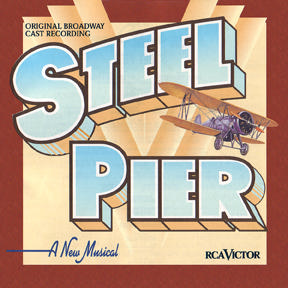
Steel Pier is a musical written by the songwriting team of Kander and Ebb from the original book by David Thompson.

Witness for the Prosecution is a play adapted by Agatha Christie from her 1925 short story "Traitor's Hands". The play opened in London on 28 October 1953 at the Winter Garden Theatre. It was produced by Sir Peter Saunders.
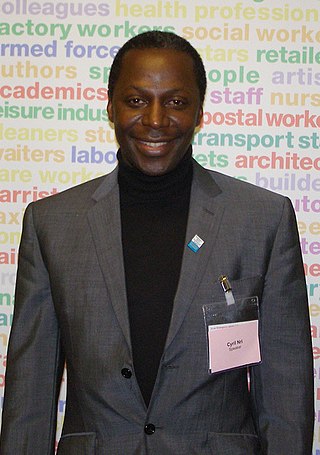
Cyril Ikechukwu Nri is a Nigerian-born British actor who is best known for playing Superintendent Adam Okaro in the police TV series The Bill.
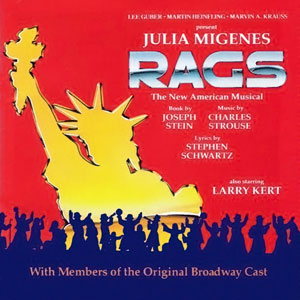
Rags is a musical with a book by Joseph Stein, lyrics by Stephen Schwartz, and music by Charles Strouse.
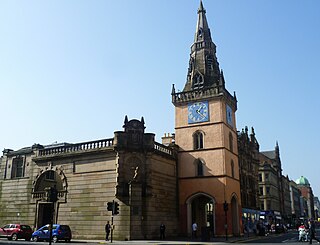
The Tron Theatre is located in the corner of Trongate and Chisholm Street. This location was formerly the Tron Kirk, which began as the Collegiate Church of Our Lady and St. Anne in the Trongate area of Glasgow, Scotland. The Tron Steeple still stands adjacent to the theatre.
Ashes to Ashes is a 1996 play by English playwright Harold Pinter. It was first performed, in Dutch, by Toneelgroep Amsterdam, the Netherlands' largest repertory company, in Amsterdam, as part of its 1996–1997 season, and directed by Titus Muizelaar, who reprised his production, in Dutch with English surtitles, as part of a double bill with Buff, by Gerardjan Rijnders, at the Riverside Studios, Hammersmith, from 23 through 27 June 1998. Its English première by the Royal Court Theatre opened after the Dutch première, at the Ambassadors Theatre, in London, on 12 September 1996.

Timo Torikka is a Finnish actor. He graduated from the Theatre Academy of Finland in 1982, after which he has worked both on the stage and onscreen. One of his most well known parts is the role of Pentti Saari in Pekka Parikka's film Talvisota. He also acted in two episodes of French television series Maigret with Bruno Cremer.

The Lowell mills were 19th-century textile mills that operated in the city of Lowell, Massachusetts, which was named after Francis Cabot Lowell; he introduced a new manufacturing system called the "Lowell system", also known as the "Waltham-Lowell system".
Enda Oates, occasionally credited as Enda Oats, is an Irish stage, film, and television actor. He has received attention for his stagework, but is best known to Irish television audiences as the Reverend George Black in the long-running series Glenroe for RTÉ, and as Barreller Casey in the sitcom Upwardly Mobile.
Irina Brown is a theatre and opera director in the United Kingdom, where she has lived and worked for over thirty years. Brown was the Artistic Director of the Tron Theatre in Glasgow from 1996 to 2000, and Natural Perspective Theatre Company, London from 2006 to 2011. She is noted for directing the production of Further Than the Furthest Thing by Zinnie Harris for the Royal National Theatre, The Sound of Music for the West Yorkshire Playhouse, Racine's Britannicus at Wilton's Music Hall and The Importance of Being Earnest at Open Air Theatre, Regents Park as well as Bird of Night by Dominique Le Gendre at the Royal Opera House, Covent Garden and War and Peace for the Scottish Opera/ RSAMD. Brown was the Granada Artist-in-Residence at the University of California, Davis in 2004 and 2008.

Johnny Lingo is a 1969 short film directed by Wetzel O. Whitaker. The film and later remake are based on a short story by Patricia McGerr, originally published in a 1965 issue of Woman's Day. The 24-minute film was produced by Brigham Young University, but does not specifically mention The Church of Jesus Christ of Latter-day Saints outside of the credits.
Zinnie Harris FRSE is a British playwright, screenwriter and director currently living in Edinburgh. She has been commissioned and produced by the Royal Court Theatre, Royal National Theatre, the National Theatre of Scotland and the Royal Shakespeare Company. Her plays have been translated and performed in many countries across Europe and the globe.

The Industrial ruins are a heritage-listed archaeological site at Cliff Terrace, Macleay Island, City of Redland, Queensland, Australia. It was built from c. 1869 to c. 1871. It was added to the Queensland Heritage Register on 6 April 1998.
Alex & Co. is an Italian television series that first aired on Disney Channel Italy on May 11, 2015. It was created by Marina Efron Versiglia and stars Leonardo Cecchi, Eleonora Gaggero, Beatrice Vendramin, Saul Nanni, and Federico Russo, as well as English actress Olivia-Mai Barrett in the special season episodes.

Dear Evan Hansen is a musical with music and lyrics by Benj Pasek and Justin Paul, and a book by Steven Levenson. The musical follows Evan Hansen, a high school senior with social anxiety, "who invents an important role for himself in a tragedy that he did not earn".
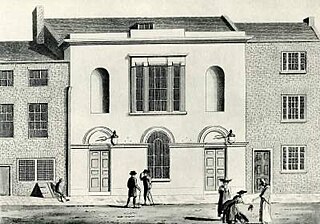
The Theatre Royal, Southampton was a theatre in Southampton, Hampshire, England. It opened in 1803 and was located near the Medieval Merchant's House on French Street. Jane Austen and her family visited the theatre in 1807. The building was later renovated and expanded, and reopened as New Theatre Royal in 1880. It was destroyed by a fire in 1884.

Tremors: Shrieker Island is a 2020 American direct-to-video horror monster film directed by Don Michael Paul and co-written with Brian Brightly. It is the seventh film in the Tremors franchise. The film stars Michael Gross and Jon Heder.
References
- 1 2 3 Harris, Zinnie (2000). Further than the Furthest Thing. London: Faber & Faber. ISBN 0-571-20544-5.
- ↑ "This week's new theatre and dance". the Guardian. 20 April 2012. Retrieved 19 May 2021.
- ↑ New Theatre Quarterly 68: Volume 17, Part 4: v. 17
- 1 2 "Further Than The Furthest Thing". www.standard.co.uk. 10 April 2012. Retrieved 19 May 2021.
- ↑ Weber, Bruce (6 February 2002). "THEATER REVIEW; Where Citizens Are Guilty, but Always With an Explanation". The New York Times. ISSN 0362-4331 . Retrieved 19 May 2021.
- ↑ "Further Than the Furthest Thing | TheaterMania". www.theatermania.com. Retrieved 19 May 2021.
- ↑ Isherwood, Charles (5 February 2002). "Further Than the Furthest Thing". Variety. Retrieved 19 May 2021.
- 1 2 "Further Than the Furthest Thing". The List. 30 April 2012. Retrieved 19 May 2021.
- ↑ "Theatre reviews: Enquirer | Further Than The Furthest Thing | 5 Minute Theatre". www.scotsman.com. Retrieved 19 May 2021.
- ↑ "Further than the Furthest Thing revival to run at the Young Vic". WhatsOnStage.com . 3 November 2022. Retrieved 3 April 2023.
- ↑ "Further Than the Furthest Thing review – slow-burn study of seclusion and secrecy". The Guardian . 17 March 2023. Retrieved 3 April 2023.